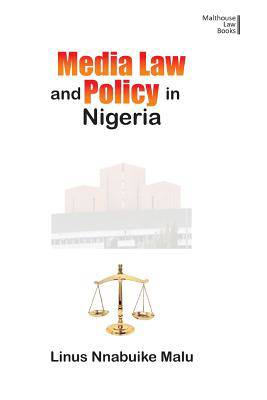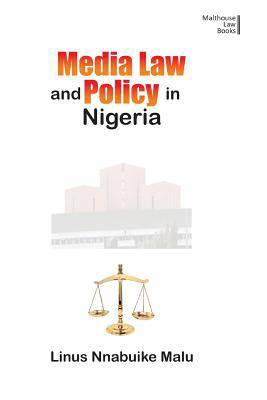
- Afhalen na 1 uur in een winkel met voorraad
- Gratis thuislevering in België vanaf € 30
- Ruim aanbod met 7 miljoen producten
- Afhalen na 1 uur in een winkel met voorraad
- Gratis thuislevering in België vanaf € 30
- Ruim aanbod met 7 miljoen producten
Zoeken
Omschrijving
This study of the state of media law in Nigeria contains analyses of the interplay of law, politics, the economy and other social factors on the state of freedom of expression. Juxtaposed are the regime of media law and regulations, judicial interpretation of these laws, the existing environment for the realisation of freedom of expression and the associated general political, social and economic environment. Critical attention is given to the various enactments regulating freedom of expression and the provisions on freedom of expression in the 1963, 1979 and 1999 Constitutions of Nigeria. How national media laws compare with international treaties and how regulators influence media contents, are also examined. The book is addressed to a wide audience: mass communication and law students, lecturers and teachers in tertiary institutions offering relevant courses, legal practitioners, journalists and those working in the field of mass communication, human rights and political activists, politicians and party bureaucracies, policy makers, researchers and experts in think tanks.
Specificaties
Betrokkenen
- Auteur(s):
- Uitgeverij:
Inhoud
- Aantal bladzijden:
- 418
- Taal:
- Engels
Eigenschappen
- Productcode (EAN):
- 9789785193268
- Verschijningsdatum:
- 30/04/2016
- Uitvoering:
- Paperback
- Formaat:
- Trade paperback (VS)
- Afmetingen:
- 156 mm x 234 mm
- Gewicht:
- 584 g

Alleen bij Standaard Boekhandel
+ 164 punten op je klantenkaart van Standaard Boekhandel
Beoordelingen
We publiceren alleen reviews die voldoen aan de voorwaarden voor reviews. Bekijk onze voorwaarden voor reviews.











